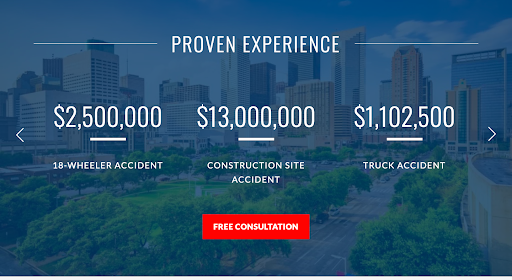No salesperson is ever 100% satisfied with their performance –– that’s the nature of the job.
However much you’ve sold in the last quarter, you still feel like you should be striving to double your income by selling even more.
But being a top sales performer isn’t easy. By definition, not everyone can be at the peak of the game; most will struggle just to hit their quota.
Still, that doesn’t mean you can’t take steps to boost your performance by learning from the best. Whether you want to make money online, on the phone, or in-store, these 10 secrets of top sales performers will help you get there.
How to Be a Top Sales Performer
To be a top sales performer, focus on building strong relationships with prospects and customers, continually improving your product knowledge and sales skills, setting ambitious but achievable goals, and staying motivated and resilient. Regularly measure and analyze results to identify areas for improvement.
They Build More Meaningful Relationships With Prospects
It’s impossible to overstate the importance of relationship-building in the world of sales.
More than four-fifths of Americans say it’s important for them to buy from sellers they’re familiar with, according to Pew Research.
Prospects aren’t going to feel “familiar” with you if your whole approach is based on rushing to close the deal as fast as possible. Allow yourself the time to nurture your prospects, share relevant content, and generally add value throughout the process.
More often than not, you won’t have to do much “selling” at all when you invest in relationship-building, because the prospect will have all the information they need by the time they’re ready to buy. They’ll effectively close the deal themselves.
They Understand the Value of Following Up
Sure, following up isn’t the most fun part of sales. No one wants to spend all their time asking if a prospect saw their last message or monitoring their email response time.
But follow-up messages –– whether via email, phone, or social media –– are a vital part of the sales process. According to one study, 80% of prospects answer at least “no” four times before they say “yes”. So it stands to reason that if you aren’t following up regularly, you’re missing out on a lot of deals.
That might sound obvious, but many salespeople just don’t take the time to follow up with prospects. That same study shows that:
- 44% of salespeople give up after one “no”
- 22% give up after two “nos”
- 14% give up after three “nos”
- 12% give up after four “nos”
They Have Embraced Automation
The previous point demonstrates that being a top sales performer requires tenacity and a desire to keep on making one more call.
But that’s not to say that top salespeople simply work harder. There are lots of reps out there working long hours yet still missing their target.
In reality, the best performers don’t just work hard –– they work smart, focusing on the activities that add the most value, and leaving the rest to sales and marketing automation services.
Automating low-impact, labor-intensive activities like scheduling meetings and writing up call notes frees up valuable time that can be better spent elsewhere. Or better yet, make use of all the sales automation tools on the market nowadays.
That’s important because almost two-thirds of reps’ time, on average, is spent in non-revenue-generating activities.
They’re Hungry to Learn
Being a top sales performer requires deep product knowledge. It helps you communicate the features and benefits in a way that resonates with your prospects.
But it’s not just about understanding the specific product you’re selling –– it’s also about figuring out how that product makes your customers’ lives easier and fits into their daily workflow.
You can’t get that sort of knowledge solely by concentrating on your product. You need to pay attention to what’s going on in the wider market.
That’s why the best salespeople at SEO and content marketing agencies enroll in digital marketing courses, and the top business insurance reps get professional certifications. It gives them the tools to act as trusted advisors to their prospects, not just another salesperson trying to earn a commission.
They Take the Customer’s Perspective
Sales is an inherently selfish profession. You have tough targets to hit; if you keep missing, you’ll eventually be out of a job, regardless of how the rest of the team performs.
As such, it’s hardly surprising that a lot of reps fall into the habit of viewing interactions with prospects solely from their own perspective. They want to pitch their product and move on to the next prospect as fast as possible.
But this approach fails to consider what the customer wants. After all, it’s their responsibility to choose the product that offers the most value to their company. If they get it wrong, their neck is on the line, not yours.
That’s why you need to take the time to dig into your prospects’ pain points. Rather than listing the generic benefits of your product, figure out the specific ways it will make life easier for the prospect in question.
They Emphasize Value Over Price
Of course, price is important. If your product has a more-or-less identical feature set to that of your biggest rival, but you charge twice as much for it, you’re going to struggle to make sales.
But the price isn’t the end-all, be-all. One study discovered that the way customers perceive a price can be just as important as the price itself. In other words, a brand can be perceived as offering low prices, even if it’s more expensive than the competition.
That’s why being a top sales performer is about highlighting the value of your product, rather than focusing solely on how much it costs.
Think about it. If your whole pitch is based around being the cheapest on the market, your strategy falls apart the second a cheaper solution turns up.
But if you focus on the unique value you provide, that’s a much more compelling proposition.
For example, Brain White Associates points out the experience under the firm’s belt on their website while also offering a free consultation to new clients:

They Adapt Their Approach for Each Prospect
Picture a stereotypical salesperson and you likely come up with some sort of Wolf of Wall Street character –– brash, arrogant, and extremely extroverted.
But the idea that being a top sales performer requires an extrovert personality just isn’t true. In reality, it might actually be a barrier to success.
According to research from Adam Grant of the University of Pennsylvania, “ambiverts” –– that is, people with a more or less equal blend of introvert and extrovert traits –– actually make the best salespeople, generating 24% more revenue than introverts and 32% more than extroverts.
Why? Because ambiverts are best placed to switch up their approach based on the personality of each prospect.
They Communicate Concisely
Your prospects are busy. While they don’t want to be hustled into a sale before they’re ready to buy, they also don’t want to waste a ton of time focusing on irrelevant detail.
The best salespeople can focus on a handful of key points that will make the biggest difference to a prospect, rather than talking through every single feature.
To keep them on track, they’ll often use a loose sales script consisting of a few bullet points covering the various selling points and themes they plan to cover. This helps them keep the conversation short and sharp, leaving more time to dig into the prospect’s questions.
They Ask for Referrals
Referrals are one of the most valuable tools in a salesperson’s locker.
Think about it. You’ve done a fantastic job and found the perfect solution for your prospect. They’re delighted with the service you’ve provided and the efforts you’ve taken to overcome their problems, and they’re happy to sign on the bottom line.
Chances are, they know lots of people in similar jobs who face similar business challenges.
Those people could be a great fit for your product, too. By asking for an introduction, you’re not only building a stronger sales pipeline –– you’re leveraging the power of word-of-mouth marketing as well.
So it’s no surprise that B2B companies with referrals have a 70% higher conversion rate and report a 69% faster close time, according to research from Influitive and Heinz Marketing.
Take Business Insurance USA for example. They use a simple plug-in to display all of their reviews on their website as they come in:

This simple change on their website increases conversion rates by putting customers at ease.
Yet many salespeople don’t take advantage of this. In a hurry to close one deal and move on to the next, they fail to ask for referrals. Or perhaps they’re simply embarrassed to ask for a recommendation.
Get into the habit of asking for referrals each and every time –– even with prospects who don’t go on to buy from you. It’s the best way to leverage the powers of referral marketing.
They End Pitches With a Question
Once you’ve ended a pitch, it can be difficult to move the conversation along. You want to know whether the prospect liked what they heard, but you don’t want to put them on the spot and risk scuppering the deal.
That’s why it can often help to end your pitch with a simple question. Something like:
- Did that make sense?
- Are there any other points you want me to discuss?
- Would you like me to repeat anything?
These questions can help you understand your customer’s mindset without asking them outright. If they have concerns, chances are they’ll reference them at this point.
Bringing it All Together
There are lots of tactics that can help salespeople improve their performance and convert more prospects into paying customers.
You can leverage the latest sales and marketing technology, learn more about your industry, and figure out how to communicate your value proposition more concisely.
But ultimately, being a top sales performer boils down to understanding your customers.
If you know the problems they’re facing and exactly why they’d want a product like yours, you’ve already gone a long way toward closing the deal.
Author: Freya Laskowski

Freya is a personal finance expert and founder of the CollectingCents website that teaches readers how to grow their passive income, save money, improve their credit score, and manage debt. She has been featured in publications like Business Insider, Fox Business, the Huffington Post, and GoBankingRates.




